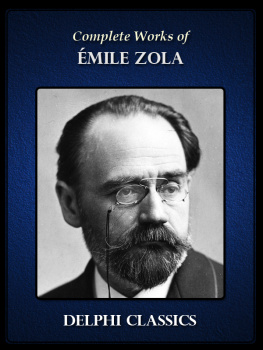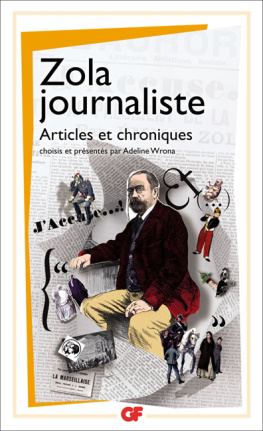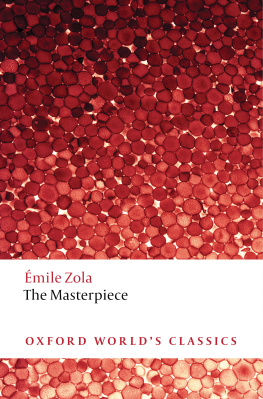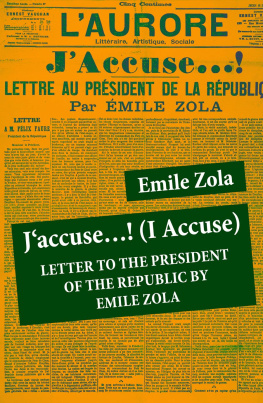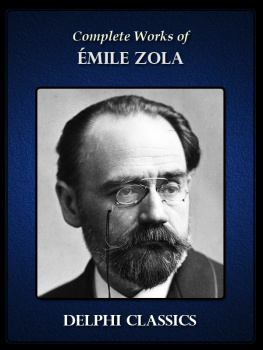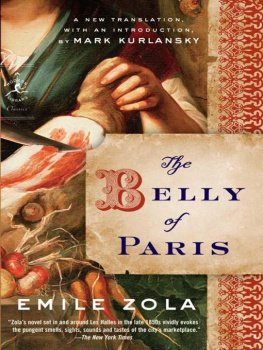Emile Zola - The Dream
Here you can read online Emile Zola - The Dream full text of the book (entire story) in english for free. Download pdf and epub, get meaning, cover and reviews about this ebook. year: 2018, publisher: Oxford University Press, genre: Non-fiction. Description of the work, (preface) as well as reviews are available. Best literature library LitArk.com created for fans of good reading and offers a wide selection of genres:
Romance novel
Science fiction
Adventure
Detective
Science
History
Home and family
Prose
Art
Politics
Computer
Non-fiction
Religion
Business
Children
Humor
Choose a favorite category and find really read worthwhile books. Enjoy immersion in the world of imagination, feel the emotions of the characters or learn something new for yourself, make an fascinating discovery.

- Book:The Dream
- Author:
- Publisher:Oxford University Press
- Genre:
- Year:2018
- Rating:4 / 5
- Favourites:Add to favourites
- Your mark:
- 80
- 1
- 2
- 3
- 4
- 5
The Dream: summary, description and annotation
We offer to read an annotation, description, summary or preface (depends on what the author of the book "The Dream" wrote himself). If you haven't found the necessary information about the book — write in the comments, we will try to find it.
The Dream — read online for free the complete book (whole text) full work
Below is the text of the book, divided by pages. System saving the place of the last page read, allows you to conveniently read the book "The Dream" online for free, without having to search again every time where you left off. Put a bookmark, and you can go to the page where you finished reading at any time.
Font size:
Interval:
Bookmark:
mile Zola was born in Paris in 1840, the son of a Venetian engineer and his French wife. He grew up in Aix-en-Provence, where he made friends with Paul Czanne. After an undistinguished school career and a brief period of dire poverty in Paris, Zola joined the newly founded publishing firm of Hachette, which he left in 1866 to live by his pen. He had already published a novel and his first collection of short stories. Other novels and stories followed, until in 1871 Zola published the first volume of his Rougon-Macquart series, which was subtitled Natural and Social History of a Family under the Second Empire and set out to illustrate the influence of heredity and environment on a wide range of characters and milieus. However, it was not until 1877 that the seventh novel in the series, LAssommoir, a study of alcoholism in the working classes, brought him wealth and fame. The Dream, the sixteenth novel in the series, published in 1888, offers an unusual hybrid of realism and fairy tale, and tells the story of a young girl, a penniless embroideress given to flights of mysticism, who falls in love with a young nobleman. The last of the Rougon-Macquart novels appeared in 1893 and Zolas subsequent writing was far less successful, though he achieved fame of a different sort in his vigorous and influential intervention in the Dreyfus case. His marriage in 1870 had remained childless, but his extremely happy liaison in later life with Jeanne Rozerot, initially one of his domestic servants, gave him a son and a daughter. He died in 1902.
Paul Gibbard is Senior Lecturer in French Studies at the University of Western Australia. He has worked previously as an editor of the Complete Works of Voltaire at the Voltaire Foundation, Oxford, and at Monash University and the University of New England.
oxford worlds classics
For over 100 years Oxford Worlds Classics have brought readers closer to the worlds great literature. Now with over 700 titlesfrom the 4,000-year-old myths of Mesopotamia to the twentieth centurys greatest novelsthe series makes available lesser-known as well as celebrated writing.
The pocket-sized hardbacks of the early years contained introductions by Virginia Woolf, T. S. Eliot, Graham Greene, and other literary figures which enriched the experience of reading. Today the series is recognized for its fine scholarship and reliability in texts that span world literature, drama and poetry, religion, philosophy and politics. Each edition includes perceptive commentary and essential background information to meet the changing needs of readers.


Translated with an Introduction and Notes by
PAUL GIBBARD


Great Clarendon Street, Oxford, ox 2 6 dp , United Kingdom
Oxford University Press is a department of the University of Oxford. It furthers the Universitys objective of excellence in research, scholarship, and education by publishing worldwide. Oxford is a registered trade mark of Oxford University Press in the UK and in certain other countries
Paul Gibbard 2018
The moral rights of the author have been asserted
First published as an Oxford Worlds Classics paperback 2018
Impression: 1
All rights reserved. No part of this publication may be reproduced, stored in a retrieval system, or transmitted, in any form or by any means, without the prior permission in writing of Oxford University Press, or as expressly permitted by law, by licence or under terms agreed with the appropriate reprographics rights organization. Enquiries concerning reproduction outside the scope of the above should be sent to the Rights Department, Oxford University Press, at the address above
You must not circulate this work in any other form and you must impose this same condition on any acquirer
Published in the United States of America by Oxford University Press 198 Madison Avenue, New York, NY 10016, United States of America
British Library Cataloguing in Publication Data
Data available
Library of Congress Control Number: 2018938825
ISBN 9780198745983
ebook ISBN 9780191063060
Printed and bound in Great Britain by Clays Ltd, Elcograf S.p.A.
Those who do not wish to learn details of the plot may prefer to read this Introduction as an Afterword.
R eaders who pick up a copy of The Dream having finished one of Zolas better-known novels, such as LAssommoir, Germinal, or La Bte humaine, may have an impulse, as they wade deeper into it, to double-check the name of the author on the title page. The Dream, the sixteenth of the twenty novels that make up the Rougon-Macquart series, is the least Zolaesque among them. Although it is, like the others, a naturalist novel set in Second Empire France, and linked to them by the lineage of its main character, it is at the same time a fairy tale, a romance between naive young lovers that unfolds in the shadow of a medieval cathedral. The story opens during a snowstorm on Christmas Day, when the young heroine, Anglique, takes shelter beneath a cathedral porch. She is found by a childless couple, a pair of humble embroiderers, who take her in and raise her as their own. From these beginnings, fairy-tale elements multiply. Anglique falls in love with Flicien, a lords son, and their attachment develops chastely, Zola choosing to steer them away from the sort of frank sexual encounters he had described in some of his earlier novels. The Dream was partly intended by Zola to show critics who had accused him of obscenity that he could in fact portray the psychology of more sensitive characters. Rather like an actor playing against type, Zola enjoys the freedom that this new approach affords him. He places his characters in a setting suffused with a mood that owes much to the Middle Agesa period he had long been fascinated by, and which he evokes through his descriptions of castle and cathedral architecture, embroidery, stained glass, and heraldry. He creates in Anglique an unusual heroine, a girl initially dominated by her passions, who is gradually reformed through the influence of her environment. He also hints at his own private anxieties, rarely voiced in the Rougon-Macquart series, concerning his childless marriage. Radically different from its predecessors, this novel, a hybrid of antagonistic genres, interweaving realism with fairy tale, reveals a new side to Zolas art and contains hints of the softening to come in his naturalist stance.
When TheDream was published in 1888, reviewers reacted in markedly different ways: there was confusion, disappointment, and scornbut also a certain amount of admiration. Those who welcomed this poem of grace tended to find points of continuity between it and the lyrical qualities in Zolas earlier works. What, then, had propelled Zola to soar free of the tawdry realities of life, which many critics considered his natural element? Why had he written a novel that seemed so uncharacteristic?
By late 1887, when Zola began preparatory work on The Dream, it seemed that naturalism had reached a point of crisis. As he mulled over his plans for the novel, he decided that his new book would have to take into account the reaction against naturalism and the current mania for mysticism. In the wake of this letter, other writers and critics ganged up against Zola. Anatole France criticized him for lacking any conception of the inner life of humanity:
Font size:
Interval:
Bookmark:
Similar books «The Dream»
Look at similar books to The Dream. We have selected literature similar in name and meaning in the hope of providing readers with more options to find new, interesting, not yet read works.
Discussion, reviews of the book The Dream and just readers' own opinions. Leave your comments, write what you think about the work, its meaning or the main characters. Specify what exactly you liked and what you didn't like, and why you think so.

